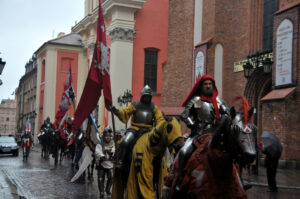
Jessie Bailey Assistant Director for Recruiting, Admission, Student Services nominated this word. I’m surprised we have not featured it before, but then it’s not a word I often use.
One reason? I think of the 1970s and pop-psychology when I see our word, rarely these days. Indeed, usage peaked in the year 1970.
Gestalt comes from German in the 1890s, and it began in the then-new field of Psychology. Any pop-culture misuses arose far later. A 1926 example in the OED sums up “The work of the Gestalt school with its stress upon the unity of psychic processes. Note, The Gestalt theorists.”
I’ll quote the OED here for a definition, “A ‘shape’, ‘configuration’, or ‘structure’ which as an object of perception forms a specific whole or unity incapable of expression simply in terms of its parts.” The human personality certainly qualifies. We all, to paraphrase Walt Whitman, contain multitudes. Our childhood experiences good or bad, educations, work, associations, cultural and linguistic backgrounds all contribute to our personality.
Loosely speaking, “the whole is greater than the sum of all its parts” expresses the idea of gestalt. A homely example would be any event that becomes full of meaning from many inputs. Consider the recent Thanksgiving meal you may have enjoyed with loved ones. That event means more than eating, certainly more than turkey and stuffing. The OED says this about the arts, providing a 1962 quotation that abstract paintings “are concerned with gestalt effects, and with after-images, they are not out to batter one’s eyes into submission.”
I happen to really like Jackson Pollock’s work. It took me a while to see that his techniques involved more than mere dripwork. Somehow the paintings began to take me places, emotionally, by their color and vastness. Thus the gestalt of Pollock’s work, difficult to name, but to me more than line, color, and size. They evoke in me a relaxed contemplation, and your mood may be different from mine. You might feel battered into submission, whatever the OED says. I feel transported now by abstract expressionism, in a way I was not when I first encountered it four decades ago.
So thanks, Jessie, for a thought-provoking Word of the Week!
If you have a word or metaphor you enjoy, send them by e-mail (jessid -at- richmond -dot- edu) or leaving a comment below.
See all of our Metaphors of the Month here and Words of the Week here.
Image source, Flowcomm at Flickr
 Let’s end a dark year on a happy note. Do you feel euphoric that 2023 has ended? I sure do.
Let’s end a dark year on a happy note. Do you feel euphoric that 2023 has ended? I sure do.







